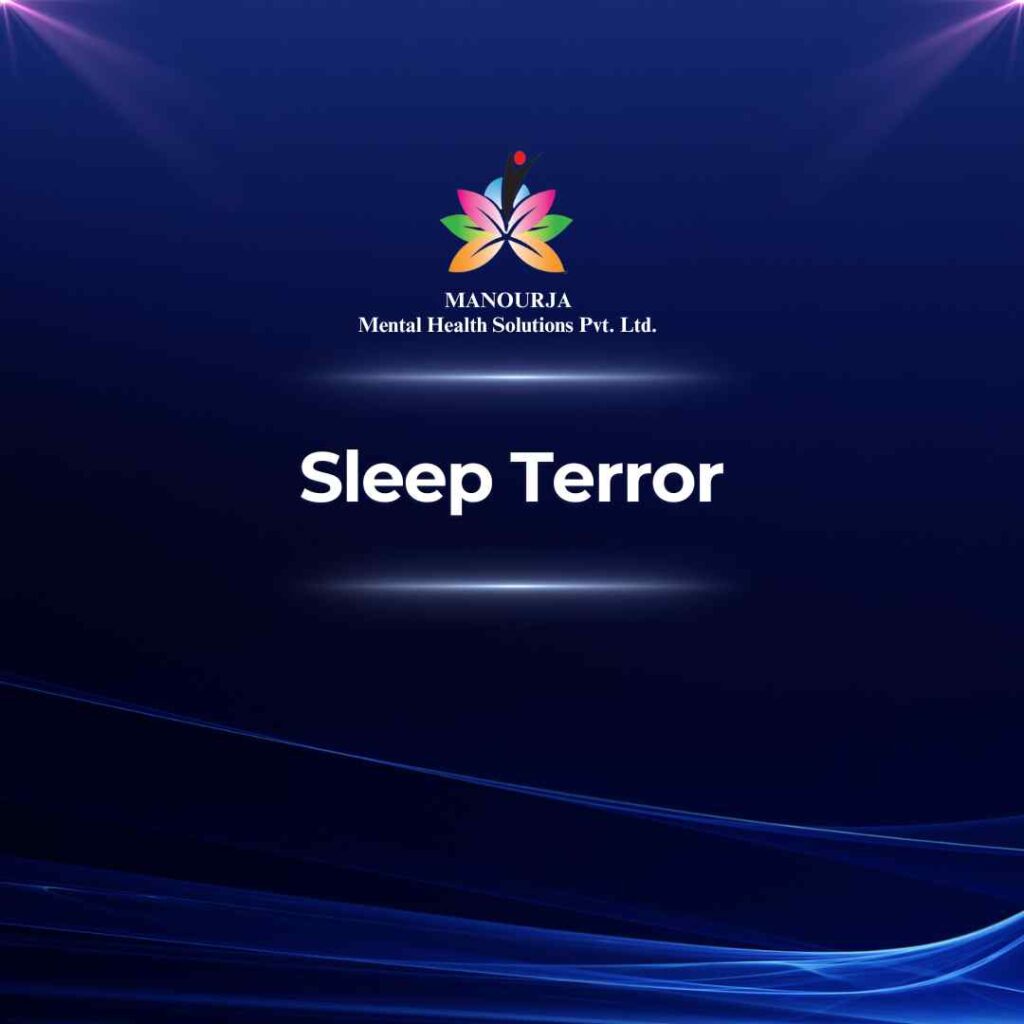Sleep Terror

Sleep Terror (also known as Night Terrors) is a sleep disorder classified as a type of parasomnia—an undesirable behavior or experience during sleep. Sleep terrors are characterized by episodes of screaming, intense fear, and flailing while still asleep, significantly different from nightmares.
Symptoms of Sleep Terrors
- Sudden Awakening: Typically, an episode involves suddenly sitting upright in bed, screaming or shouting, appearing terrified, and not being fully awake.
- Intense Fear and Physical Symptoms: During a sleep terror episode, the individual may have a look of fear and panic, may sweat, have increased heartbeat, and even exhibit rapid breathing.
- Limited Recall: Upon waking, the person usually does not remember the event or may have a vague, fragmented recall of a frightening scenario.
- Unresponsiveness: During episodes, individuals are usually unresponsive to attempts by others to comfort or awaken them and do not recognize others around them.
- Physical Activity: It’s common to see thrashing or running out of the bed during an episode, which can sometimes lead to injuries.
Forms of Sleep Terrors
Sleep terrors are primarily categorized based on the stage of sleep in which they occur:
- NREM (Non-Rapid Eye Movement) Sleep Terrors: Most commonly, sleep terrors occur during NREM sleep, specifically during stages 3 and 4 of the sleep cycle, which are the deepest stages of sleep. These are more common in children and usually occur in the first half of the night.
Treatment of Sleep Terrors
Often, sleep terrors decrease in frequency and intensity as children grow older and may not require extensive medical treatment. However, when treatment is necessary, especially in adults or persistent cases in children, the following options may be considered:
- Improving Sleep Hygiene: Ensuring regular sleep schedules, creating a comfortable sleeping environment, and avoiding sleep deprivation can help reduce the frequency of sleep terrors.
- Safety Measures: Taking precautions to ensure safety during episodes is crucial. This may include securing windows and doors, placing a gate at the top of stairs, and moving objects away from the bed area to prevent injuries.
- Stress Reduction: Because stress can trigger episodes, techniques such as relaxation therapy, counseling, and stress management strategies may be helpful.
- Scheduled Awakenings: This technique involves waking the individual approximately 15-30 minutes before the expected time of a sleep terror, as these often occur at predictable times each night.
- Medication: In severe cases, especially when the episodes pose a risk of injury or significantly impact quality of life, medications such as benzodiazepines may be prescribed to help reduce the occurrence of sleep terrors.
- Counseling or Psychotherapy: If sleep terrors are associated with underlying psychological issues or significant stress, therapy may be beneficial.
- Monitoring and Consultation: Regular follow-ups with a healthcare provider are important to adjust treatment strategies and ensure that the episodes are managed effectively.
For many individuals, especially children, sleep terrors are a transient issue that improves with age. However, for persistent or particularly disruptive cases, seeking evaluation from a healthcare provider is advisable to rule out underlying conditions and discuss appropriate treatment options.
At MANOURJA, we believe in the transformative power of counseling. Our experienced therapists offer a safe and supportive space where you can explore your thoughts, emotions, and challenges. Through personalized counselling sessions, we’ll work together to develop coping strategies, build resilience, and achieve lasting positive change. Discover the path to a healthier, happier you with MANOURJA counselling services.
MANOURJA Rehabilitation Services
At MANOURJA, we’re dedicated to helping you in rebuild your life, after difficult times. Our rehabilitation services focus on understanding what you need to move forward, whether you’re recovering from addiction, trauma, or any psychological – social challenges. We create personalized plans, that are all about helping you, regain your strength and find hope again. With a caring team by your side, you’ll have the support to make real progress and take steps toward a brighter, healthier future.
